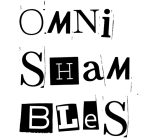The older I get, the more I realize how much I don’t know – and will never know. Despite having the goal to read at least one book per week, I’m having a hard time doing it. To add to the misery, it doesn’t a degree in mathematics to realize that even if I could read 52 books per year, assuming I get the opportunity to live until I’m 100, I can only expect to read just over 2000 books before I’m dead. And that’s the best case scenario! If I only manage 26 per year and live until I’m 90, that drops to 800.
Math aside, the challenge then becomes working out which books to choose, given that not only do thousands of new ones appear every year but that there are also many more that have been published since the invention of the printing press.
All of this is pretty much just a preamble to explaining why it is that I’ve reached the age of 57 and only now found the time to read Apollodorus’s The Library, which I’ve decided I should have done 40 years ago! Sure, it’s not as racy as Ovid’s Metamorphoses and it’s a denser read than Homer’s Odyssey, but it’s packed with gods, mythology, and more characters than Game of Thrones. The copy I bought is from the Loeb Classical Library and not only has the original Greek paired with the English translation on every two pages but it includes fascinating commentaries by the translator, the brilliant anthropologist and scholar J.G. Frazer [1]. Although it’s often promoted, or perceived, as a text for academics and students, quite frankly it’s the sort of book anyone can read and find lots of interesting and entertaining snippets of knowledge.
Not surprisingly, considering how educated and erudite Frazer was, now and again I have to pause my reading to head for the dictionary. More specifically, I use the Oxford Dictionaries Quick Search app [2] on my Moto X phone because it’s quick, convenient, and accurate. And my latest new word was supposititious.
At first, I thought it was a misprint for superstitious but when I re-read the sentence it clearly was supposed to mean something else. And it did! The word is used in the story of Oedipus, who was the son of King Laius and Jocasta. Laius had been warned by an oracle not to have a son because he would grow up to kill his father and sleep with his mother. Tragically, one night he got roaring drunk and had sex with Jocasta, which resulted in Oedipus. So Laius had his new-born taken out into the mountains and left to die. Fortunately for Oedipus [3], he was found by a cowherd of King Polybus and taken to him and his wife, Periboea. They brought him up as their son, not revealing that he was a foundling. However, there were rumors…
When the boy grew up and excelled his fellows in strength, they spitefully twitted him with being supposititious. (Apollodorus, p.345).
The first meaning of the word as defined by the OED is as follows:
Put by devious means in the place of another; fraudulently substituted for the genuine thing or person. Hence: falsely claimed or purporting to be something, not genuine, spurious, counterfeit, false.
The colleagues of Oedipus were correct. He was indeed claiming to be the son of Polybus and Periboea but was not. In fairness, he wasn’t actually deceiving people because he wasn’t aware of his real parents, and his adoptive ones kept it a secret. In fact, it was precisely because they kept mum that Oedipus eventually killed his dad and shagged his mum! Because Periboea wouldn’t say anything about his past, he went to the oracle at Delphi who told him not to go back to his home because he would murder his father and sleep with his mother. He naturally assumed this meant Polybus and Periboea, so he left and ended up at his real birthplace where the prophecy played out.
Supposititious makes its first appearance in 1600 and is from the Latin suppositīcius, which means “to put in place of another,” “to substitute” or simply “pretended.” The supposit– element is the past participle form of the verb supponere, which means variously “to place under or beneath, to append, subjoin, to put in the place of another, substitute, to introduce fraudulently.” Breaking it down even further, the sup– is a phonetic variation [4] of the prefix sub– that means “under” or “at the bottom of,” and the ponere means “to put, to place” – literally “to put under.”
By 1620 the meaning of supposititious had been extended to include “pretended or imagined to exist; feigned, fictitious; fabulous; fancied, imaginary” in general, and five years later the meaning included the notion of the substitution of children:
Of a child, esp. one set up to displace a real heir or successor, or the birth of such a child. Also in extended sense: illegitimate.
This is the sense of the word that Frazer.
By the middle of the 17th century, supposititious was also being used as a general adjective for anything that was hypothetical, supposed, or subject to conjecture. In fact, it’s still used in the sense today – if infrequently.
It may have struck some readers that there’s another similar-sounding word that comes to mind when you see supposititious – suppository. The similarity is not accidental. A suppository is defined as:
A medicinal preparation, typically in the form of a small, solid cone or cylinder of a base material that becomes soft or liquid at body temperature, administered by insertion into the rectum, vagina, or urethra (or, esp. in early use, any body orifice other than the mouth).
It comes from the Latin suppositorium meaning “a medical plug,” which in turn can be traced back to verb supponere and the sense of “something going under.”
The word suppository was also used as an adjective meaning “supposed or hypothetical” from the mid-1600s through to the beginning of the 20th century, but its current use is almost exclusively as the noun referring to drugs administered anally.
Bottoms up!
Notes
[1] James George Frazer was born on 1st January 1854 in Glasgow, Scotland, and died on 7th May, 1941 aged 87. My guess is that he was quite capable of reading 52 books a year. And on top of that, he wrote the influential The Golden Bough: A Study in Magic and Religion, the 3rd edition of which runs to 12 volumes released between 1906 and 1915. Alas I’ve only ever managed to read the single-volume abridged version and it’s likely the encyclopedic set will never even make it onto my book shelves. Who has time to read all this good stuff?
[2] Whenever someone asks me “which dictionary should I use?” I’m now comfortable with an “It depends” response. Dictionaries are like physical tools in that you use different ones for different jobs. If your toolbox only had a hammer in it, you’d be restricted in the number of jobs you could do. It’s the same with dictionaries. I use the Oxford Dictionaries app on my smart phone when I am reading a physical book because I can have instant access to a word I don’t know literally within arm’s reach. But for some serious investigation of a word (or words) there are still times I need to pile up volumes of the Oxford English Dictionary on a table top and flick through pages of paper. Oh, and I use the online Urban Dictionary for researching slang words – but that’s a different post!
[3] Some people claim that “the name makes the man” but in the case of Oedipus it’s an example of where “the man makes the name.” When Laius first had his son exposed and left to die, he stabbed him in the ankles, presumably to speed up the process. The Greek Οἰδίπους means “swollen foot” and is a blend of οἰδεῖν meaning “to swell” and πούς meaning “foot.” The Greek πούς is gave way to the Latin ped and both are found at the root of many words used in English that related to feet, walking, and movement.
[4] When a prefix gets attached to the front of a word, the actual sound of it can changed based on the sound at the beginning of the word to which it is being attached. The final sound of the prefix “assimilates” with the initial sound of the word being prefixed so as to make the word easier to say. In the case of sub-, the final sound is the /b/ whereas the initial sound of ponere is a /p/. The difference between these two sound is that the former is voiced, which means the vocal cords vibrate a little, and the latter is voiceless, where the cords don’t get involved. If you try to say a word where you switch from /b/ to /p/ quickly, it’s hard! But what happens is that the /b/ at the end of sub shifts to become voiceless like the /p/ at the beginning of ponere, and you get supponere not subponere (or subbornere). This is Nature’s way of making speech easier. That’s also way when you hear someone say the word subpoena it is typically pronounced as “su-PEE-nuh” without any /b/ sound. Check it out next time you watch a crime drama on TV!




